SUCCESS IN GROUPWORK
POCKET STUDY SKILLS
Series Editor: Kate Williams, Oxford Brookes University, UK Illustrations by Sallie Godwin
For the time-pushed student, the Pocket Study Skills pack a lot of advice into a little book. Each guide focuses on a single crucial aspect of study giving you step-by-step guidance, handy tips and clear advice on how to approach the important areas which will continually be at the core of your studies.
Published
14 Days to Exam Success
Blogs, Wikis, Podcasts and More
Brilliant Writing Tips for Students
Getting Critical
Planning Your Essay
Planning Your PhD
Reading and Making Notes
Referencing and Understanding Plagiarism
Science Study Skills
Success in Groupwork
Further titles are planned
Pocket Study Skills
Series Standing Order
ISBN 978-0230-21605-1
(outside North America only)
You can receive future titles in this series as they are published by placing a standing order. Please contact your bookseller or, in case of difficulty, write to us at the address below with your name and address, the title of the series and the ISBN quoted above.
Customer Services Department,
Macmillan Distribution Ltd
Houndmills, Basingstoke, Hampshire
RG21 6XS England
POCKET STUDY SKILLS
Peter Hartley & Mark Dawson
SUCCESS IN GROUPWORK


Peter Hartley and Mark Dawson 2010
All rights reserved. No reproduction, copy or transmission of this publication may be made without written permission.
No portion of this publication may be reproduced, copied or transmitted save with written permission or in accordance with the provisions of the Copyright, Designs and Patents Act 1988, or under the terms of any licence permitting limited copying issued by the Copyright Licensing Agency, Saffron House, 6-10 Kirby Street, London EC1N 8TS.
Any person who does any unauthorized act in relation to this publication may be liable to criminal prosecution and civil claims for damages. Peter Hartley and Mark Dawson have asserted their right to be identified as the authors of this work in accordance with the Copyright, Designs and Patents Act 1988.
First published 2010 by
PALGRAVE MACMILLAN
Palgrave Macmillan in the UK is an imprint
of Macmillan Publishers Limited, registered in England, company number 785998, of Houndmills, Basingstoke, Hampshire RG21 6XS.
Palgrave Macmillan in the US is a division of St Martins Press LLC,
175 Fifth Avenue, New York, NY 10010.
Palgrave Macmillan is the global academic imprint of the above companies and has companies and representatives throughout the world.
Palgrave and Macmillan are registered trademarks in the United States, the United Kingdom, Europe and other countries
ISBN-13: 978-1-137-17914-2
This book is printed on paper suitable for recycling and made from fully managed and sustained forest sources. Logging, pulping and manufacturing processes are expected to conform to the environmental regulations of the country of origin.
A catalogue record for this book is available from the British Library.
A catalog record for this book is available from the Library of Congress.
10 9 8 7 6 5 4 3 2 1
19 18 17 16 15 14 13 12 11 10
Printed in China
Contents
Acknowledgements
This book was inspired by our involvement in the LearnHigher CETL. Our thanks go to all involved for their encouragement and support, with particular thanks to our current partners in the Making Groupwork Work resource Carol Elston and Julia Braham from the University of Leeds and Tony Lowe from Webducate.
Thanks must go to our series editor, Kate Williams, for her tireless commitment to plain language, and to Suzannah Burywood and colleagues at Palgrave Macmillan for their support and patience. We have learned a lot from this experience.
A final thanks to all the student groups we have worked with, especially the ones who delivered outcomes and presentations way beyond our expectations. Hopefully, this book will inspire many more to do the same.
Introduction
Most courses in higher education ask students to work in groups and/or include an assessed group project where your grade will depend on the way your group has worked together. How are you going to make the most of this experience?
Your tutors may expect you just to get on with it and not give you much guidance on how to organise yourselves. Even if the tutors do provide support and sessions on groupwork, they cannot be available all the time. But this book can!
We use examples of real student groups who made their groupwork successful, including:
 the engineering students who discovered a lifetime interest in their first meeting (see p. )
the engineering students who discovered a lifetime interest in their first meeting (see p. )
 the business students who worked out how to play the business game and learned much more than their tutors expected (p. )
the business students who worked out how to play the business game and learned much more than their tutors expected (p. )
 the media students who took a risk by reversing the task and impressing the tutor (p. )
the media students who took a risk by reversing the task and impressing the tutor (p. )
).
As these examples illustrate, there is no one best way of organising your group. You have to think about and adapt our ideas and suggestions to your own situation. But this will help you become more effective and that is what good learning is all about.
Using this guide
This book is divided into five parts that cover key aspects of groupwork:
: Getting ready for groupwork is about understanding why groups are used and what you can get out of them.
: Creating the team looks at how you can set up the first few meetings to make a positive start.
: Organising your group suggests ways of planning and organising yourselves to make the best use of your time and skills.
: Relationships and communication suggests ways of thinking about the group as a whole, effective ways of communicating and managing the relationships in the group, and what to do if things go wrong.
: Assessment and reflection suggests ways of reviewing your group experience, writing this up for assessment, and action planning for your future practice.
Each part ends with takeaway tips to summarise the most important ideas.
This book focuses on the most demanding test of your group skills where you are put in a small group and given a major assessed task which will take you several weeks, a semester or even a year to complete. But you can apply all the ideas in this book to more limited examples of groupwork. For example, if you are asked to work in a short discussion group in a class session it is worth spending a few minutes checking the task (see p. ).
Assignments and reflection
Group projects will ask you to produce a product. This will depend on the sort of course you are on it may be something physical like a design or piece of software or it may be some kind of report or theoretical argument. You may have to present your conclusions to an audience of tutors or other students. We offer suggestions on presentations in pp..
Many group projects will ask you to reflect on your group experience in a written assignment. At key points, we include relevant theory boxes and then suggest short reflective exercises that will help you write up your experience for assessment. This is . These opportunities to reflect are indicated by the Hmm logo. Combining your reflections with further investigation of theory will give you a very solid basis for any reflective assignment.
Next page
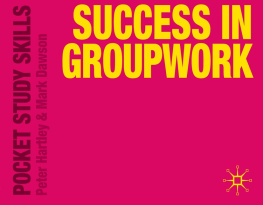

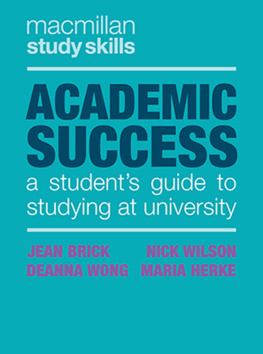
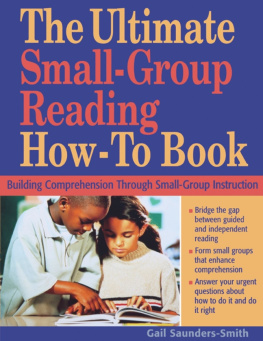


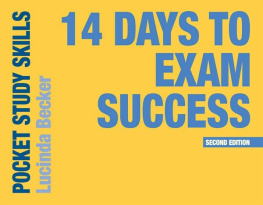
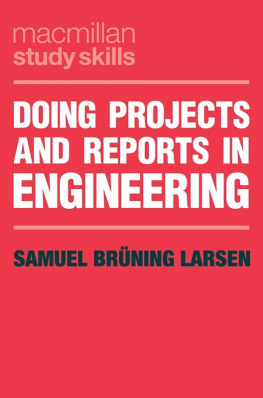

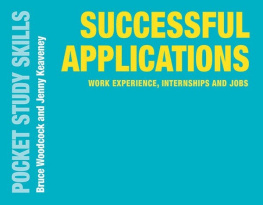



 the engineering students who discovered a lifetime interest in their first meeting (see p. )
the engineering students who discovered a lifetime interest in their first meeting (see p. )